Why Anthony Albanese backed down on voice pamphlets stoush
There is a story within Labor’s inner sanctum that when presented with the reality, it took only 30 seconds for the PM to change his mind.
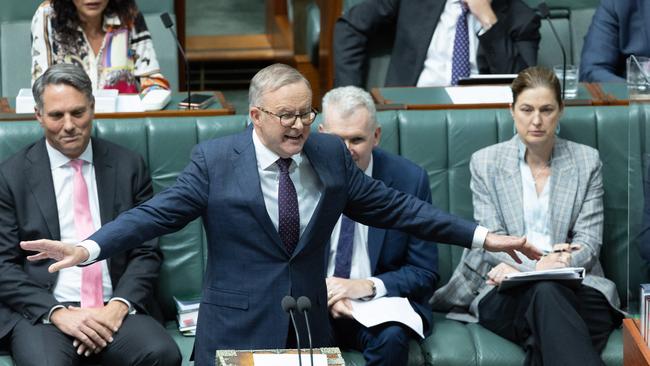
That’s 30 seconds to support the normal referendum process after more than 30 weeks of opposing it.
At the beginning of the first parliamentary week for 2023, with the government riding high in the polls and promising to implement its election promises – including the referendum – Albanese could see the problem in continuing Labor’s long-held opposition to the circulation of information pamphlets.
After being mugged by reality on the shocking violence and social disorder in Alice Springs after the lifting of grog bans last year and being forced to support sweeping alcohol prohibitions in the Northern Territory, Albanese wasn’t about to start this week with a fight he couldn’t win and that wasn’t worth the cost.
Peter Dutton’s demands for the commonsense distribution of pamphlets, particularly for older and non-English-speaking Australians, was a rational and reasonable request in the name of normal process and procedure that was giving the Liberals grounds to oppose the referendum and was creating suspicion and confusion.
Albanese is nothing if not a politician and recognised what had to be done, and he did it quickly.
But by the end of the parliamentary week the backdown on the pamphlets and the offer of funding of Yes and No campaigns – at least offering an equal zero – were relatively minor concessions to political reality.
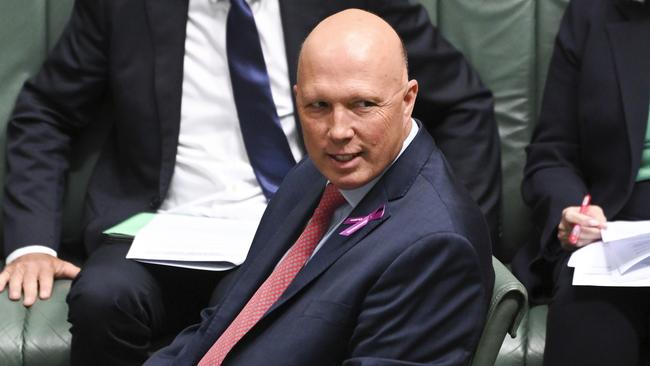
In the same week Albanese’s government faced its first legislative defeat in the Senate at the hands of an unholy alliance of the Coalition, the Greens and independents of all shades over its union-friendly superannuation fund protection. The Senate disallowed a Labor regulation that overrode the requirement that super funds publicly disclose donations and payments.
Not only did the Albanese government discover the cost of assuming support from progressive allies but it also realised there were other pivotal Labor policies at risk covering climate change, manufacturing and industrial relations. Nine months after the election last year, the rubber has hit the road. Albanese is facing a growing political and legislative challenge by the day as well as an existential threat on the economy over inflation and rising mortgage payments. Some independent MPs and Greens have discovered that a rush to achieve a warm inner feeling in passing legislation on climate change and industrial relations may make them irrelevant and produce costly laws.
As well, after a week of parliamentary questions about rising mortgage costs, interest rates and inflation, there was the further test of having to fight a by-election in the outer Melbourne mortgage-belt seat of Aston.
The Aston by-election, forced by the resignation of former Morrison minister Alan Tudge, will be a real test for Dutton’s Liberal leadership in a tough seat when the Coalition has been flogged at the state election.
But, after building expectations that inflation has peaked at 7.8 per cent, Labor also will be tested in a by-election where Albanese is well ahead of the Opposition Leader and would want to beat the Liberals and double his majority to two.
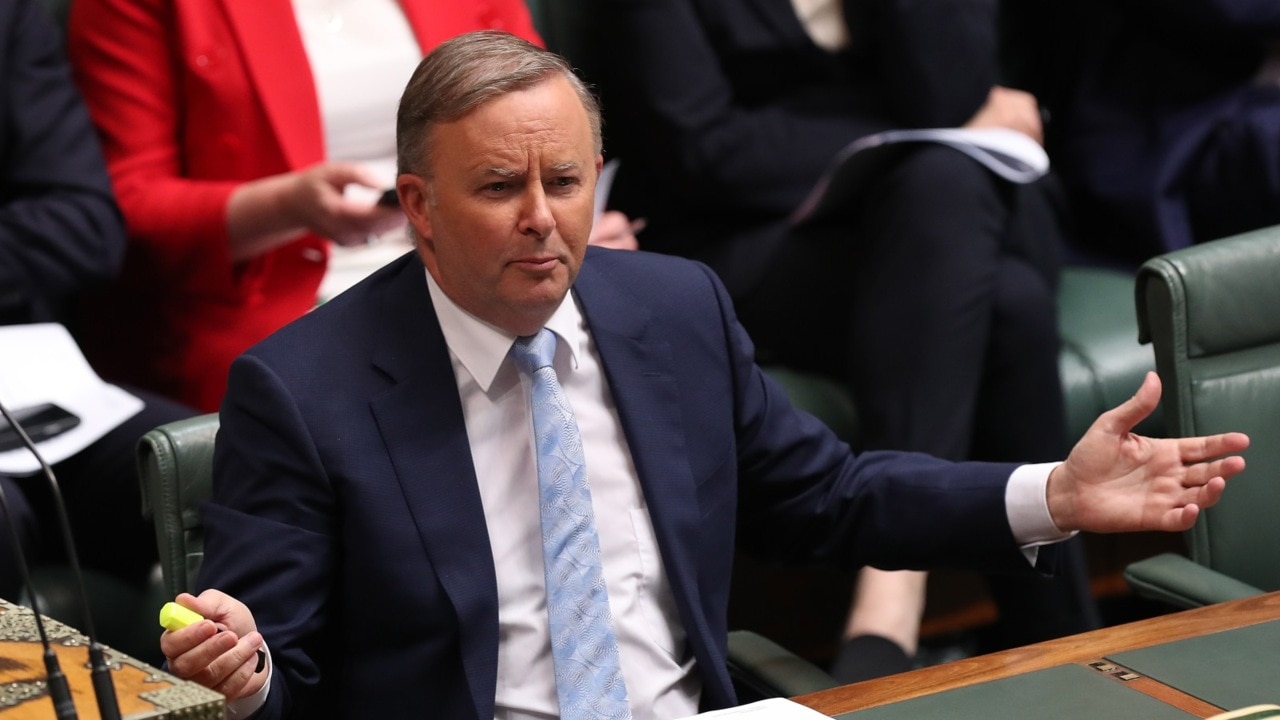
It is a must-win by-election for Dutton in his first electoral test as Opposition Leader but a poor performance from Albanese will deepen concern about the extent of the political damage being done to Labor over interest rates and inflation – particularly when interest rates are still likely to rise.
It is also a by-election that will likely come after potential defeats, or at least bruising parliamentary fights, over the government’s National Reconstruction Fund to rebuild industry (deferred to next week) and the climate change safeguard mechanism that determines the fate of 215 manufacturers and industries and their level of compulsory carbon credit purchases.
If the competing but coalesced interests of the Greens and the Coalition defeat the proposed legislation on carbon credits, Labor will be left without a way of implementing its carbon emissions cuts which are legislated reductions.
It may be that the Greens and Coalition are opposing these pivotal Labor initiatives for different reasons – and one may be bought off – but the effect of defeat for more legislation is the same.
On Thursday in parliament, after stonewalling since the election on detail on how the voice to parliament would work and skewing the debate every way he could to help the Yes vote, Albanese gave the longest answer since three-minute limits were introduced years ago and his response surprised many, including some of his colleagues.
The instant decision to back down on the pamphlets was multiplied as Albanese sought to achieve a change in direction on the voice to parliament and shore up what he has described as growing national momentum for the referendum.
Simultaneously, he sought to depoliticise the debate and distance the government from the issue – “it’s not our idea” – while offering to provide more detail and bipartisanship with the suggestion he was open to a new form of parliamentary committee, raising new elements into the political dynamic.
“This is a major issue. I cannot do more than stand here, in this parliament and offer a genuine engagement in order to achieve a positive outcome,” Albanese said.
This appears to be a clear movement away from the minimalist, detail-free position of Albanese last year to the direct appeal for bipartisanship (in part directed at moderate Liberals), a denial that the whole idea was a Labor government initiative and a closing down of options for voice representatives to participate in key cabinet committees.
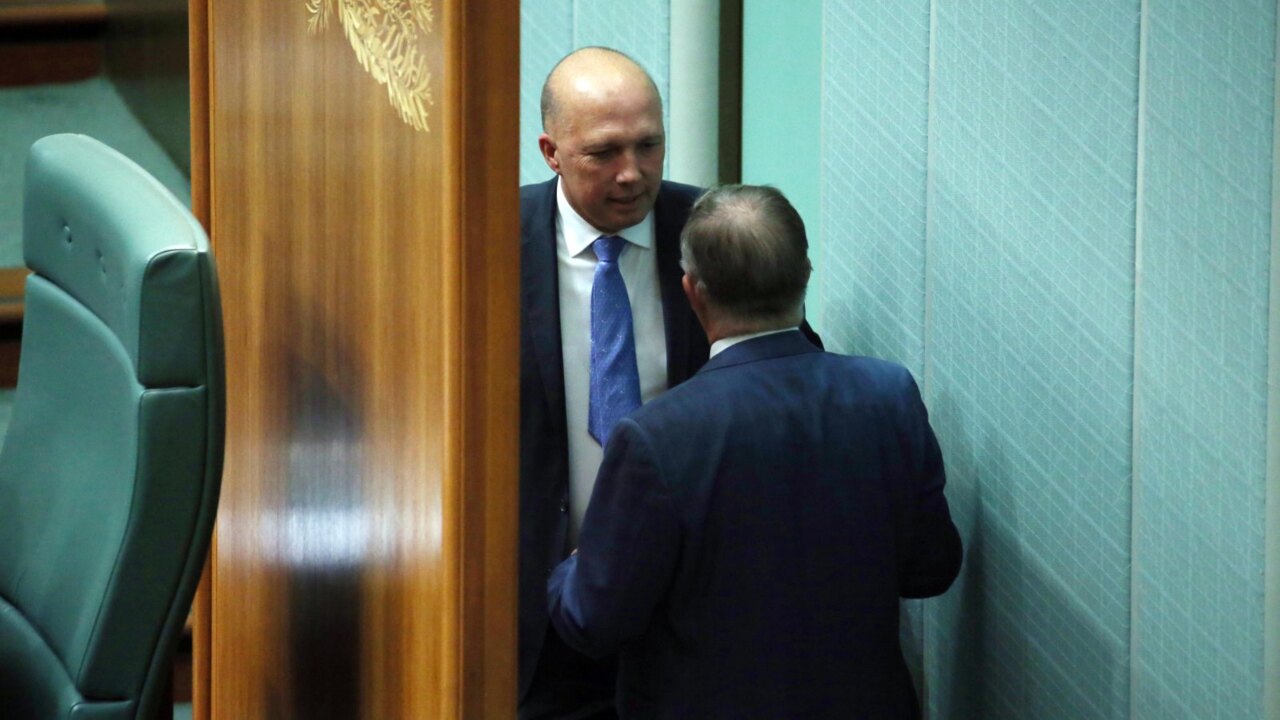
There was still the Prime Minister’s fierce outlook of what defeat in the referendum would do – in this case threaten our international standing and damage our regional trade relations – presumably reinforcing the resentment of our white European place in Asia and handing China propaganda material in the Pacific.
Earlier in the week Albanese told his Labor MPs the government would deliver on its promises, including the voice, but didn’t flag the shift on pamphlets, funding or a new form of committee. When Albanese expounded his new vision of bipartisanship it was after the defeat of the superannuation legislation and the deferral of the industry construction fund.
Dutton’s impromptu response on Thursday, as Tudge sat behind him with his resignation speech held nervously in his hands, was blunt and argued that every Australian had “a big heart and wants to see an improved situation for Indigenous Australians”. “There’s no moral high ground here,” Dutton told parliament. “There’s no lecturing to take place. Every Australian wants to see a better outcome for Australians, starting with those little boys and girls in Alice Springs at the moment who are living an unimaginable life.
“Since the election, there has been no bipartisan engagement in terms of the approach around the legislation,” he said as Coalition MPs digested Albanese’s words. Albanese had made sure his pitch to the Liberals included personalised messages to moderate Liberals who want to support the voice but have to have a plausible argument for support or a politically acceptable one for opposition.
“The government took an initial position that there would be no booklet distributed to Australians, where, particularly for Australians where English is not their first language, people wanted to sit down and read the No and the Yes case, to be informed in terms of the decision that they were being asked to make about,” Dutton said.
On the broader issue of the voice to parliament, goodwill and bipartisanship Dutton said: “Australians in their millions, at the moment, have goodwill and have an approach which I think is reflected in the view that we have taken constructively as an opposition – that is, they want to understand the detail that the Prime Minister’s proposing.”
Pressure remains on Dutton and the Liberals, who have yet to arrive at a formal position on the referendum, and Albanese’s appeal this week, amid recognition of a changing dynamic, will make it harder for some, but there’s no doubt that this week governing just got much harder for Labor.


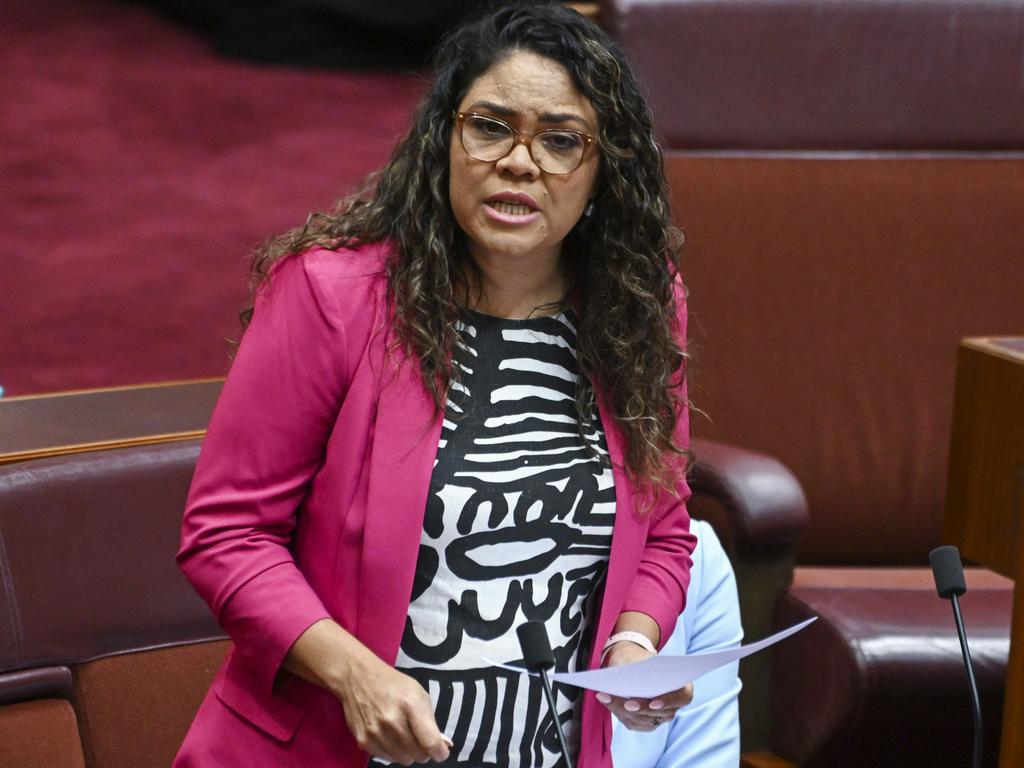
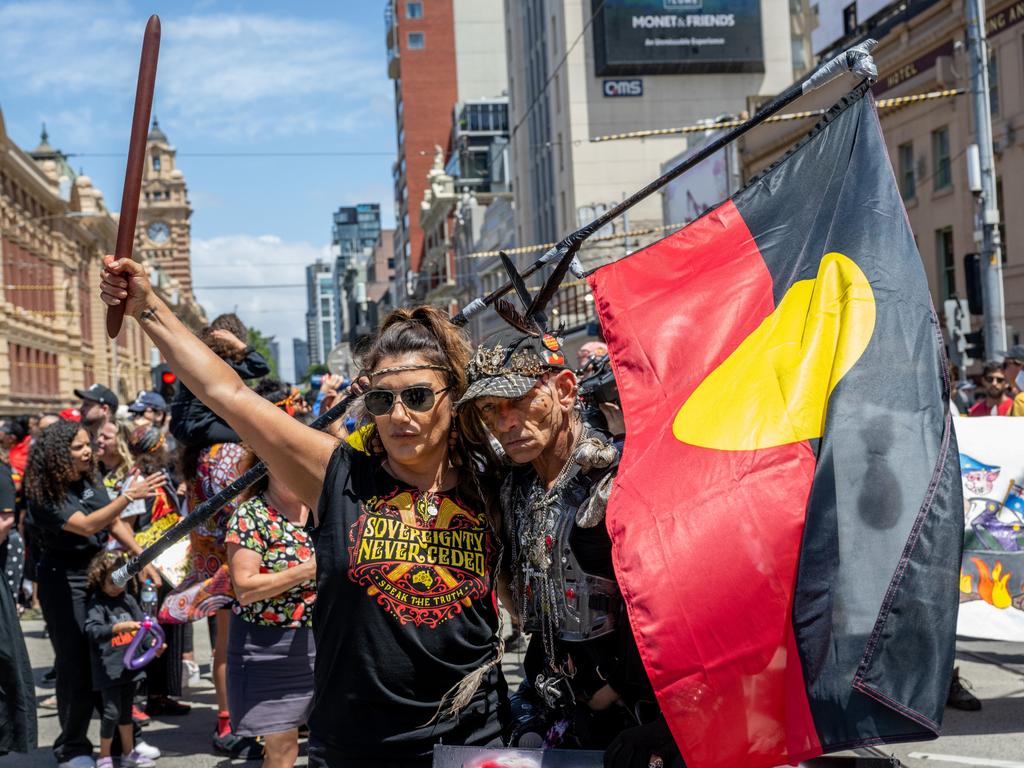
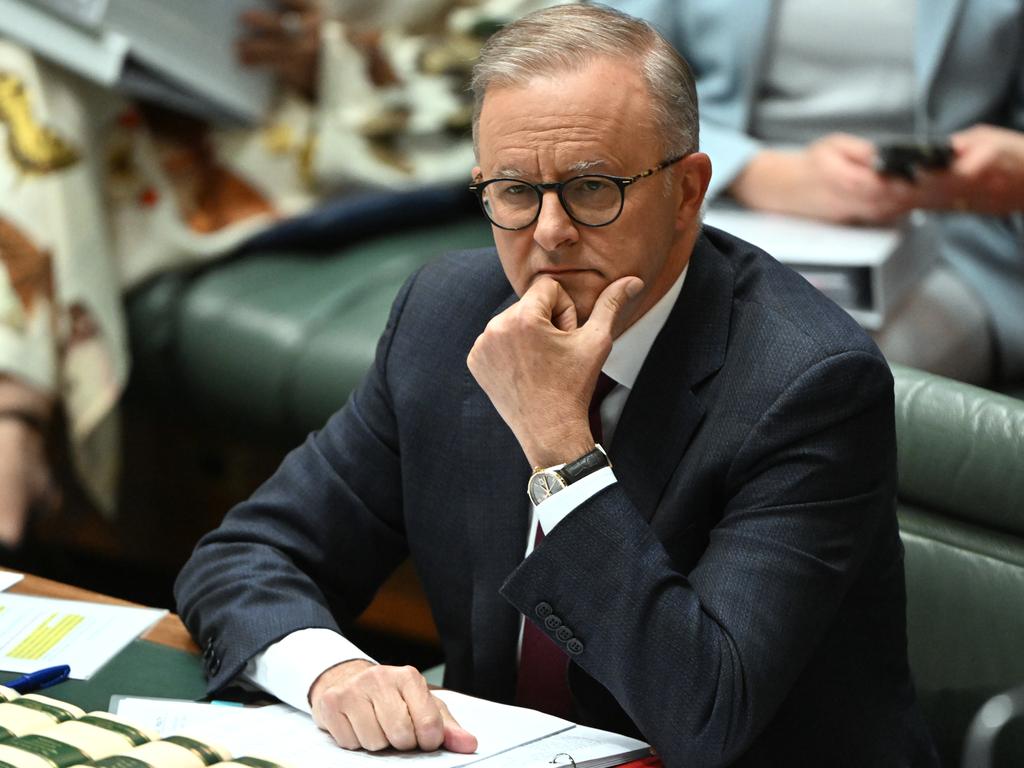



There is a story within the inner sanctums of the Labor government that when Anthony Albanese was presented with the reality that passage of the Indigenous voice legislation was threatened because of the government’s opposition to pamphlets presenting both the No and Yes cases – to be sent to all households ahead of the referendum – it took about 30 seconds for the Prime Minister to change his mind.